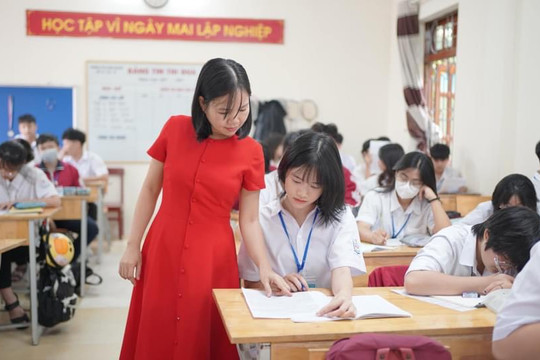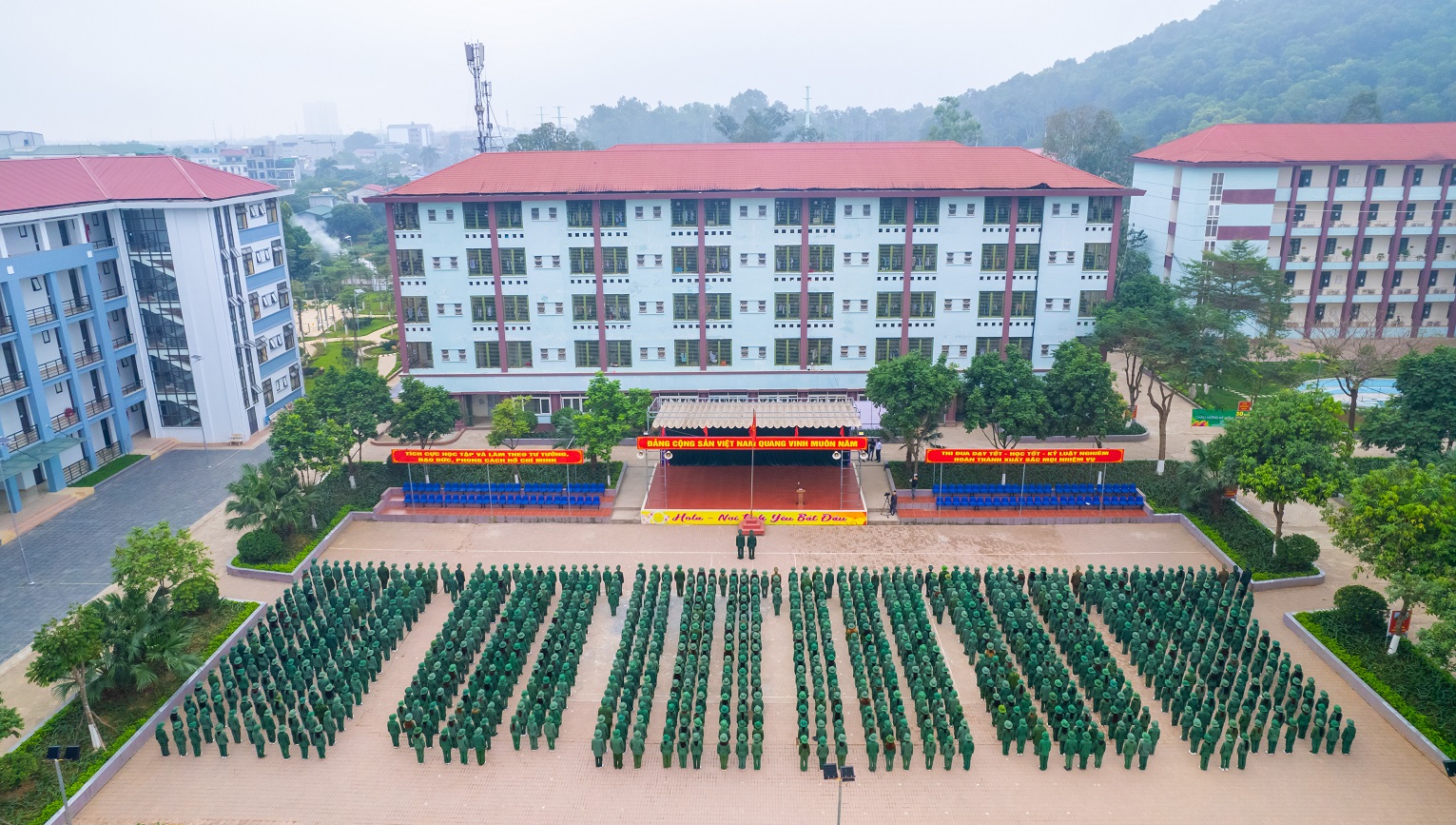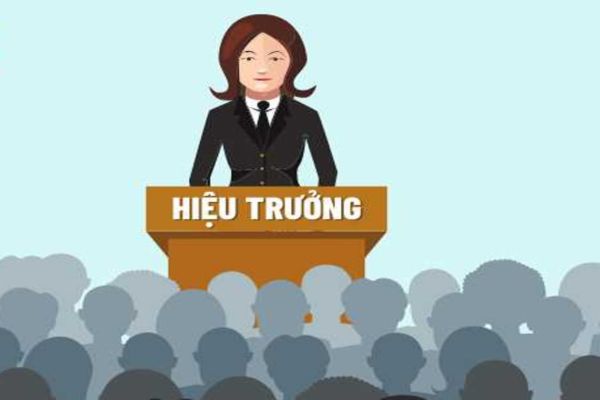06 New standards specified in Higher Education Institution Standard in Vietnam
What are the new standards specified in Higher Education Institution Standard in Vietnam? - Hanh Nguyen (Dong Nai)

06 New standards specified in Higher Education Institution Standard in Vietnam (Internet image)
Regarding this issue, LawNet would like to answer as follows:
On February 5, 2024, the Minister of Education and Training issued Circular 01/2024/TT-BGDDT promulgating the Higher Education Institution Standard
06 New standards specified in Higher Education Institution Standard in Vietnam
The Higher Education Institution Standard includes 6 standards with 20 criteria. The criteria shall be assessed via the indicators specified in Part IV. Data shall be finalized on December 31st of the reporting year and completed by March 31st of the year succeeding the reporting year.
* Standard 1: Organization and administration
Each higher education institution shall have a stable organization structure, and an effective and transparent administration system.
- Criterion 1.1. All key managerial positions (president of the school board/university board and principal/director of the higher education institution) are filled. 2 positions are not be simultaneously vacant for more than 6 months.
- Criterion 1.2. Internal regulations are fully promulgated in accordance with the Law on Higher Education.
- Criterion 1.3. The strategies and plans for development of the higher education institution is promulgated, implemented and supervised effectively via the key performance indicators. At least 50% of the primary performance indicators improve every year.
- Criterion 1.4. Student management database, quality assurance conditions and performance of the higher education institution are inter-connected, fully, accurately, promptly and uniformly updated on HEMIS.
* Standard 2: Lecturers
The quantity, level and available time of lecturers of the higher education institution are adequate for assurance of teaching and research quality.
- Criterion 2.1. The converted quality of students to full-time lecturers according to level, discipline and training mode does not exceed 40.
- Criterion 2.2. The ratio of official lecturers in the working age to total full-time lecturers is not smaller than 70%.
- Criterion 2.3. The ratio of full-time lecturers having doctoral degrees:
+ is not smaller than 20%, and from 2030 not smaller than 30% for higher education institutions that do not provide doctoral training; is not smaller than 5%, and from 2030 not smaller than 10% for special training schools that do not provide doctoral training;
+ is not smaller than 40%, and from 2030 not smaller than 50% for higher education institutions that provide doctoral training; is not smaller than 10%, and from 2030 not smaller than 15% for special training schools that provide doctoral training.
* Standard 3: Infrastructure
The premises, infrastructure, information and learning material system of the higher education institution satisfies requirements for assurance of teaching, study and research quality.
- Criterion 3.1. From 2030, the average land area (multiplied by coefficient of location) per full-time student converted according to training level and discipline is not smaller than 25 m2.
- Criterion 3.2. The average floor area of construction per full-time student converted according to training level and discipline is not smaller than 2,8 m2, at least 70% of the full-time lecturers have separate work space.
- Criterion 3.3. The library and learning resource center has adequate textbooks, monographs and other learning resources according to requirements of the training programs, where:
+ There are at least 40 titles of textbooks, monographs per academic discipline of each level;
+ The quantity of copies of textbooks, monographs per student converted according to training level is not smaller than 5.
- Criterion 3.4. The quantity of subject suitable for online teaching makes up at least 10% of the total subjects being taught in the year; the Internet traffic per one thousand students is not smaller than the average fixed broadband speed of Vietnam.
* Standard 4: Finance
The higher education institution is able to maintain financial balance, efficiency and the ability to develop sustainably.
- Criterion 4.1. Operating margin, which is the average ratio of difference between revenue and expense to total revenue over the last 3 years, is from 0% to 30%.
- Criterion 4.2. The sustainable development indicator, which is the arithmetic mean of the growth of total revenue and growth of non-tuition revenue and assistance in recurrent expenses from the State and investors over the last 3 years, is not a negative number.
* Standard 5: Recruitment and training
The higher education institution is able to maintain the quality and effectiveness of recruitment, training and support for students.
- Criterion 5.1. The average ratio of enrolled students to annual enrolment target over the last 3 years is at least 50%; The training scale is not downsized by more than 30% compared to the last 3 years, unless the downsizing is part of the development orientation of the higher education institution.
- Criterion 5.2. The dropout rate, which is the annual ratio of undergraduate students who stop studying in the year, does not exceed 10%. The first-year dropout rate does not exceed 15%.
- Criterion 5.3. The graduation ratio, which is the ratio of students who graduate late by less than 2 years from the normal graduation time, is at least 60%; the on-time graduation ratio is at least 40%.
- Criterion 5.4. The ratio of students who are satisfied with lecturers in terms of teaching quality and effectiveness is not lower than 70%; the ratio of graduates who are satisfied with the overall study process and experience is not lower than 70%.
Criterion 5.5. The ratio of university graduates who have jobs that match their education, are self-employed or take postgraduate courses within 12 months is not lower than 70%.
* Standard 6: Research and innovation
The higher education institution is capable of research and innovation, displayed through revenue from these activities and scientific publications.
- Criterion 6.1. The average ratio of revenue from science and technology activities to total revenue of the higher education institution that provides doctoral training (multiplied by coefficient of academic discipline) of the last 3 years is not lower than 5%.
- Criterion 6.2. The average number of scientific and technological publications per full-time lecturer is at least 0,3 article per year. If the higher education institution provides doctoral training and is not a special training school, this number shall be at least 0,6 article per year. Among them, the number of articles on Web of Science or Scopus (multiplied by coefficient of academic discipline) shall be at least 0,3 article per year.
More details can be found in Circular 01/2024/TT-BGDDT taking effect on March 22, 2024 and annulling Circular 24/2015/TT-BGDDT regulating national standards for higher education institutions.
- Key word:
- higher education institution
- in Vietnam
- Number of deputy directors of departments in Vietnam in accordance with Decree 45/2025/ND-CP
- Cases ineligible for pardon in Vietnam in 2025
- Decree 50/2025 amending Decree 151/2017 on the management of public assets in Vietnam
- Circular 07/2025 amending Circular 02/2022 on the Law on Environmental Protection in Vietnam
- Adjustment to the organizational structure of the Ministry of Health of Vietnam: Certain agencies are no longer listed in the organizational structure
- Vietnam aims to welcome 22-23 million international tourists in Vietnam in 2025
-

- Conditions and authority for issuing national ...
- 10:30, 23/12/2024
-

- General standards for the Principal and Vice Principal ...
- 16:00, 13/11/2024
-

- Emergency response and search and rescue organizations ...
- 10:29, 11/09/2024
-

- Handling of the acceptance results of ministerial ...
- 09:30, 11/09/2024
-

- Guidance on unexploded ordnance investigation ...
- 18:30, 09/09/2024
-

- Notable new policies of Vietnam effective as of ...
- 16:26, 11/04/2025
-
.Medium.png)
- Notable documents of Vietnam in the previous week ...
- 16:21, 11/04/2025
-
.Medium.png)
- Notable documents of Vietnam in the previous week ...
- 16:11, 02/04/2025
-
.Medium.png)
- Notable new policies of Vietnam to be effective ...
- 16:04, 02/04/2025
-
.Medium.png)
- Notable new policies of Vietnam effective from ...
- 14:51, 21/03/2025
 Article table of contents
Article table of contents
